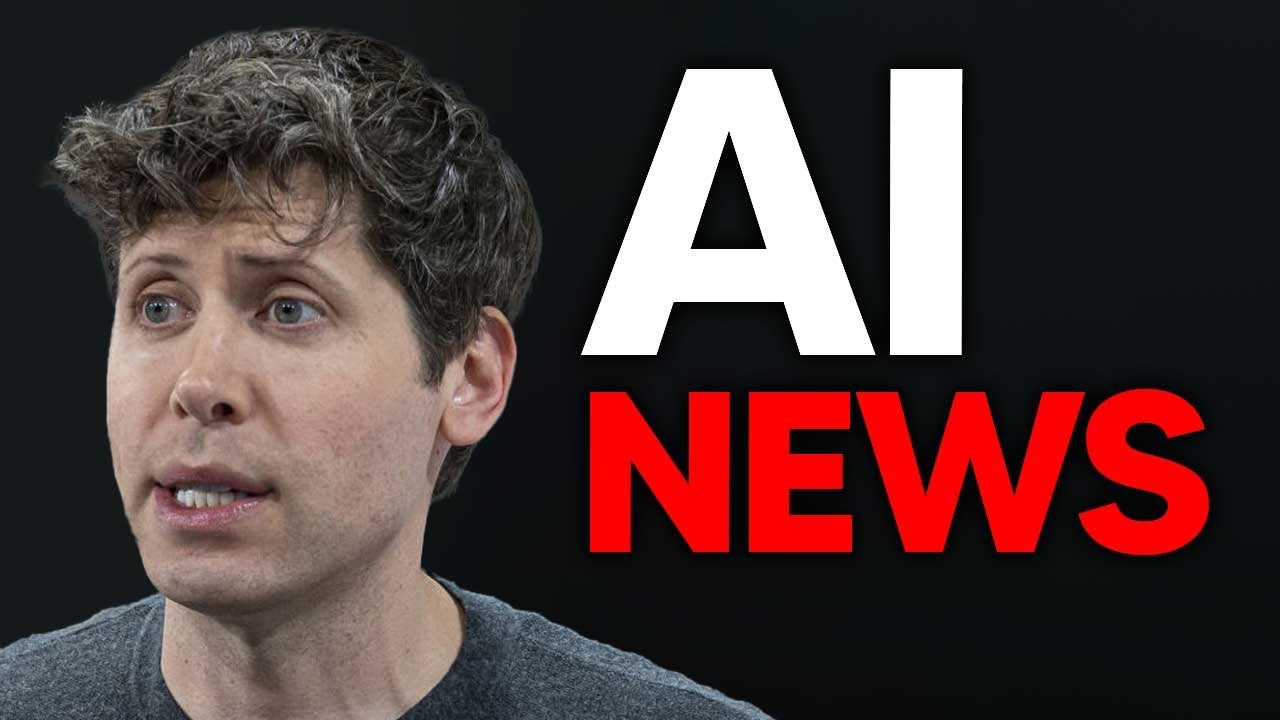The video discusses the recent talent exodus from OpenAI, including the departure of key figures like Tim Brooks, which raises concerns about the company’s ability to innovate amidst increasing competition from rivals like Google and Anthropic. It also highlights advancements in AI, such as Meta’s MovieGen, and explores the potential of AI in healthcare, while addressing ethical concerns related to AI-generated content and misinformation.
AI NEWS: Even MORE People Leave OpenAI, ChatGpts New Feature, Future Model Sizes, AI To Cure Cancer?
The video discusses significant developments in the AI industry, particularly focusing on OpenAI and its recent challenges. Tim Brooks, the Sora research lead at OpenAI, announced his departure to join Google DeepMind, highlighting a trend of key talent leaving OpenAI. This exodus raises concerns about the company’s ability to maintain its competitive edge, especially as other companies like Google and Anthropic attract top talent. The video emphasizes that the loss of key individuals, such as the lead of the super alignment team and the CTO, could hinder OpenAI’s progress and innovation in the rapidly evolving AI landscape.
The video also touches on Meta’s new video generation model, MovieGen, which is currently the best in the world but remains expensive and time-consuming to operate. Meta’s leadership has indicated that they are not ready to release the product due to these challenges. The discussion suggests that the high costs and long generation times of advanced AI models are common issues that companies face, which may explain why OpenAI has not yet released Sora to the public. The video speculates that the ongoing talent drain at OpenAI could lead to a faster release of products, as only those pushing for rapid development remain.
Additionally, the video highlights a recent article from The Hollywood Reporter that discusses the internal dynamics at OpenAI following the departure of Mira Moratti. Moratti’s exit was partly attributed to concerns over the rapid release of products without adequate safety measures. This situation reflects a broader tension within the company between those advocating for speed and those prioritizing safety, raising questions about OpenAI’s future direction and stability as it faces increasing competition.
The video also covers OpenAI’s recent fundraising efforts and its request for investors to avoid certain AI startups, which has sparked debate about the company’s competitive strategy. While Reuters reported that OpenAI sought to discourage investment in rival companies, OpenAI’s CFO denied these claims, emphasizing the importance of a thriving AI ecosystem. The CFO also hinted at ambitious plans for future AI models that will require significant capital investment, suggesting that OpenAI is preparing for a new phase of growth and development.
Finally, the video concludes with a discussion on the potential of AI to contribute to significant advancements in healthcare, such as curing cancer. Sam Altman, CEO of OpenAI, expressed optimism about AI’s future capabilities in collaboration with human researchers. The video reflects on the broader implications of AI-generated content, noting that even AI-generated images can influence public perception and beliefs, regardless of their authenticity. This raises ethical concerns about the impact of AI on society and the challenges of managing misinformation in an increasingly AI-driven world.
